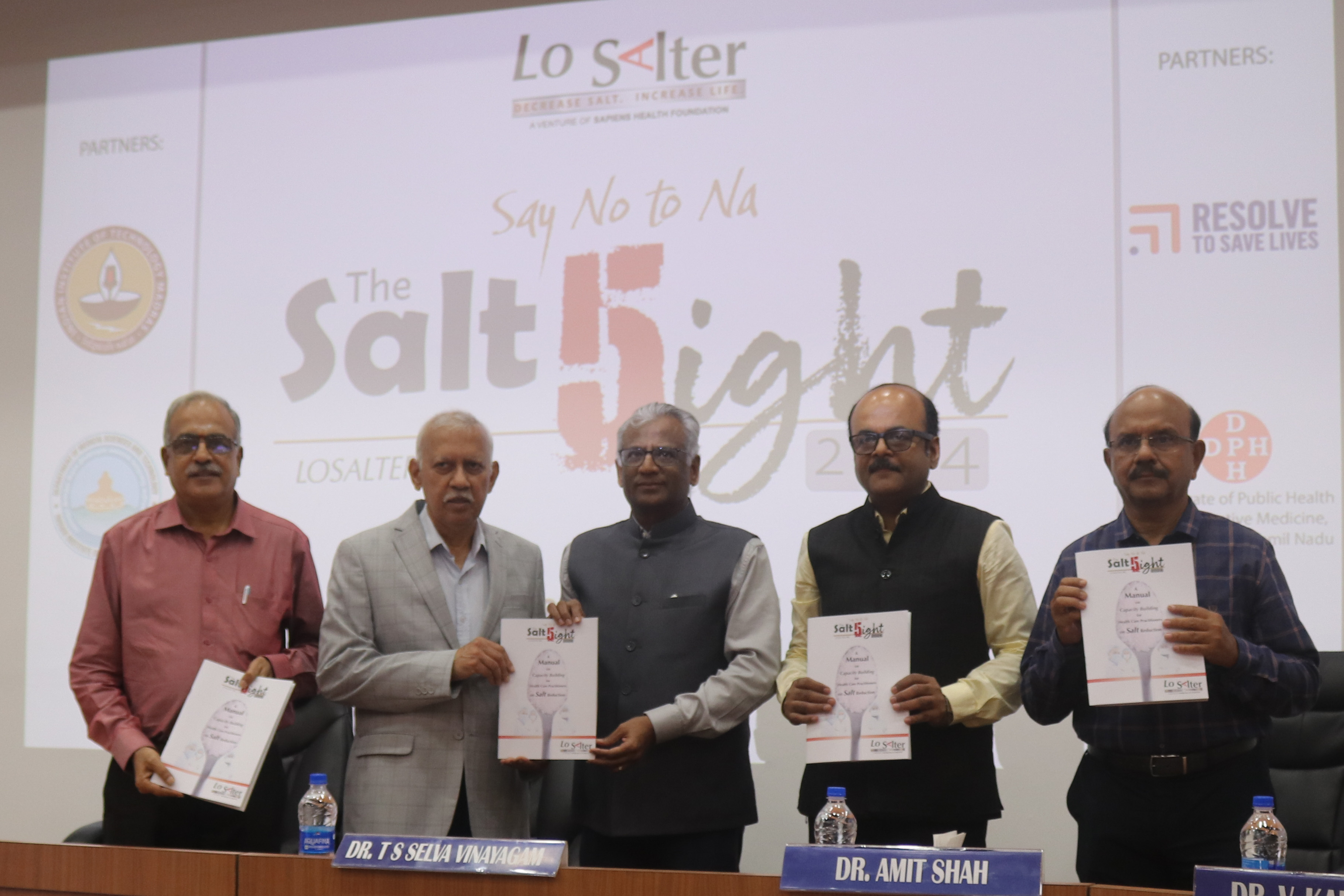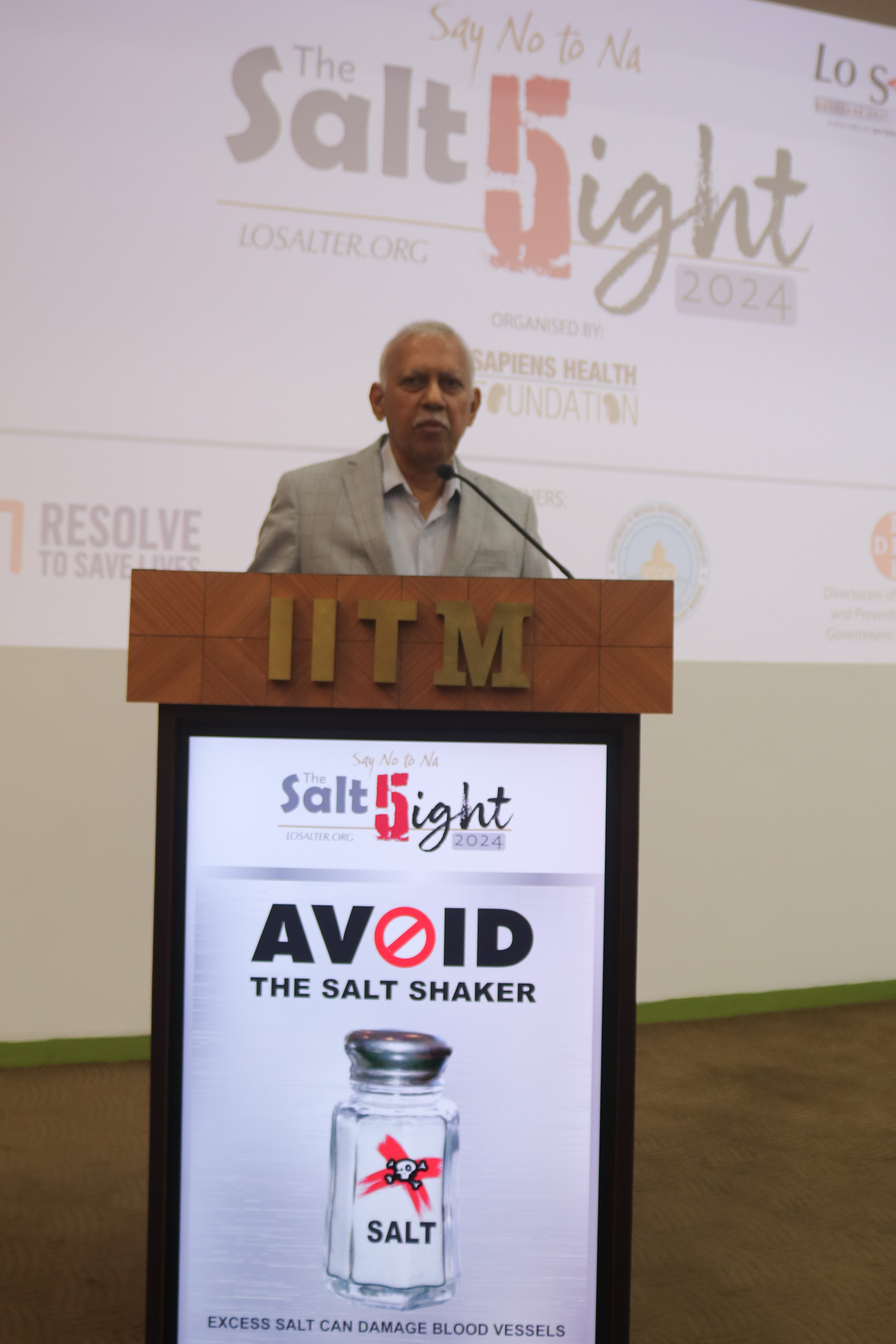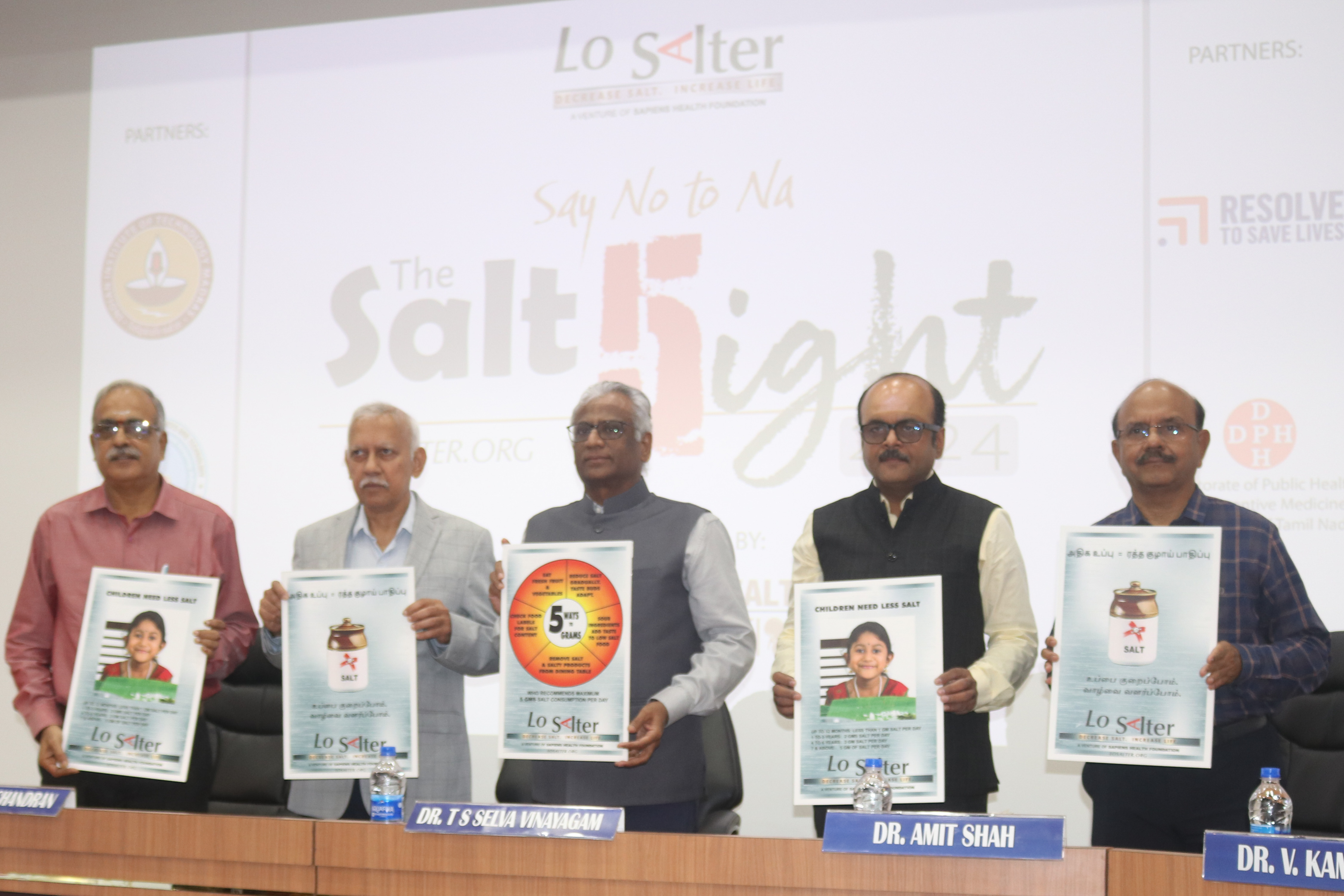Special Service and Features
Sapiens Health Foundation & Dept of Medical Sciences and Technology, IIT Madras, conduct workshop on ‘Low Salt Diet’
It was a collaborative effort between Sapiens Health Foundation, Dept of Medical Sciences & Technology, Directorate of Public Health, Govt of Tamil Nadu, & Resolve to Save Lives, a New York-based NGO
Posted On:
30 JUN 2024 3:34PM by PIB Chennai
Sapiens Health Foundation and Indian Institute of Technology Madras (IIT Madras) Department of Medical Sciences and Technology conducted a workshop today (30th June 2024) on capacity building for medical professionals and physicians in salt reduction and low-salt substitutes.
The workshop was a collaborative effort between Sapiens Health Foundation, Department of Medical Sciences and Technology at IIT Madras, the Directorate of Public Health and Preventive Medicine, Government of Tamil Nadu, and Resolve to Save Lives (RTSL), a New York-based NGO. The event is intended to boost the collective fight against high salt consumption.
Dr Rajan Ravichandran, Chairman of the Sapiens Health Foundation and Professor of Practice at IIT Madras, underscored the importance of labelling and statutory guidelines on salt/sodium contents in packaged foods, a key area of focus for all the stakeholders involved.
Dr T.S. Selva Vinayagam, Director, Public Health and Preventive Medicine, Government of Tamil Nadu, was the chief guest of the event in which doctors, faculty and students from IIT Madras, among others, took part.
Emphasizing the TN Government’s commitment to preventing non-communicable diseases, Dr T.S. Selva Vinayagam, Director, Public Health and Preventive Medicine, Government of Tamil Nadu, said, “We all know that non-communicable diseases accounts for nearly 65% of the fatalities/mortalities. To address this epidemic, we need to address the ‘risk factors’ which are modifiable such as salt, sugar and related items. Unless we address these factors, it would not be sustainable for any country to manage the complications due to NCD. Reducing salt in-take is among the most cost-effective strategy even though it might seem as a simple thing. A global document and strategy that states if you are able to reduce current salt consumption by 30%, there will be a reduction of at least 25% prevalence in hypertension.”
Dr T.S. Selva Vinayagam added, “This is no more a medical challenge but a ‘commercial determinant’. The consumption of processed food is increasing due to lifestyle modifications and an instant attraction to fast foods leading to over consumption that results in complications like mortalities. The industry is searching for a new customer through children. We need to break this down at different levels to bring down the NCD Problem. We have more ultra high-density products that are available resulting in children getting addicted due to the easy availability and convenience. This we need to address through people like you (Doctors).”
Further, Dr T.S. Selva Vinayagam said, “The current data says that almost 70-80% of the salt which we consume is from hidden sources and not direct consumption. This is due to increased ease of ordering food to home and eating out. There should be a certain level of action that we as individuals can do and also certain actions which we need to do at a population-level or community level that Governments can take. People should be more discerning in what they eat. Whatever public interventions were taken up for tackling tobacco should be taken up for salt also as this is a bigger challenge. Every US$ 1 spent on intervention will give not less than $12 in returns. The returns are manifold such as preventing mortality, complications and prolonging the healthy years.”
Sending a message for the workshop, Prof. V. Kamakoti, Director, IIT Madras, who lauded the Sapiens Health Foundation's efforts in spreading awareness on reducing salt in food, said, “Health is wealth. Public awareness about good practices in food preparation and consumption is a must. I immensely commend Sapiens Health Foundation and Department of Medical Sciences and Technology for this effort.”
On this occasion, a manual on salt guidelines for Physicians was released. To spread the message, Colourful posters for reducing salt were distributed to the participants.
Dr. Amit Shah, Director, Resolve to Save Lives (RTSL), India, highlighted the global movement for reduced salt intake, which has gained momentum, and appealed to the medical fraternity to prioritise salt intake when treating patients.
During the workshop, several medical experts from different parts of the country shared their insights on various aspects of salt, its relationship to blood vessels, heart an kidneys and bones, among others.
The discussion also focused on the role and availability of cost-effective low salt substitutes. The importance of creating awareness in the population, the need for food industries to reformulate low sodium products, and governmental policies on taxation on high-salted items and food labelling for salt were key subjects. The workshop's outcomes, including the suggested low-salt recipes, are crucial for the audience to stay informed and aware of the ongoing efforts in salt reduction.
The workshop concluded with inspiring remarks and a vote of thanks by Mr. R. Sundar, Trustee of Sapiens Health Foundation. He highlighted the uniqueness of the workshop as a global programme and its potential impact on the Nation’s health.
Mr. R. Sundar also announced the Foundation's plan to hold similar workshops in Mumbai and Delhi, further bolstering the fight against high salt consumption. This commitment to action should inspire all the stakeholders to continue their efforts in salt reduction.




***
AD/KV
(Release ID: 2029694)
Visitor Counter : 216